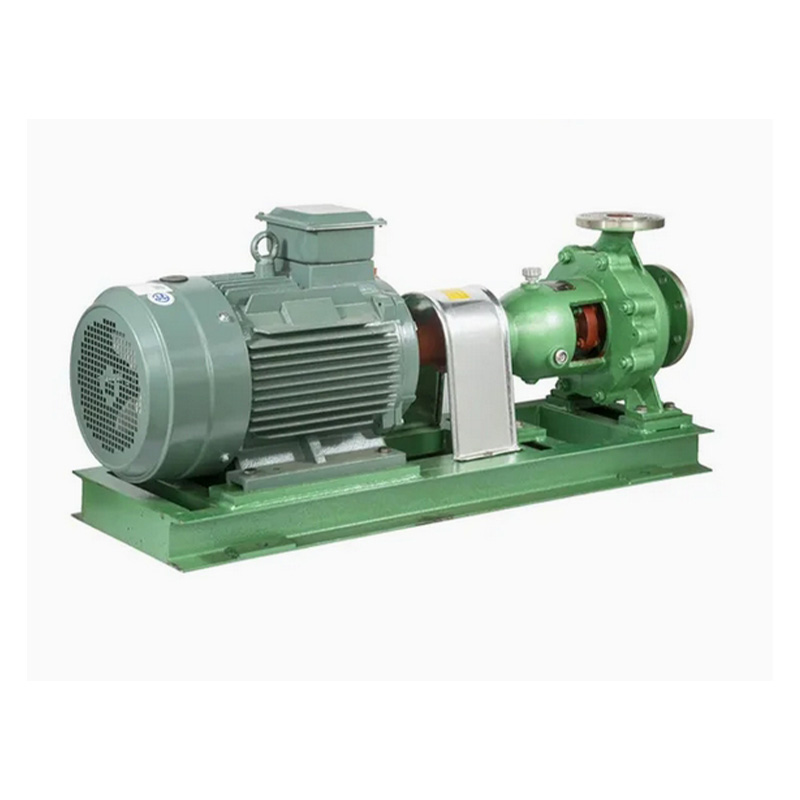IH Type Horizontal Chemical Centrifugal Pump
Cat:Chemical Process Pump
The IH type chemical centrifugal pump is a single-stage single-suction (axial suction) cantilever centrifugal pump, which is used to transport liquids...
See DetailsIn the world of industrial processing, transferring chemicals safely and efficiently is critical. Whether in water treatment, pharmaceuticals, petrochemicals, or food processing, the right chemical pump ensures that corrosive, abrasive, or hazardous fluids are handled with precision and safety. With a wide array of pump technologies available, understanding the three major types of chemical pumps can help industries select the best solution for their operations.
The Three Major Types of Chemical Pumps
Chemical pumps come in many designs, but they can be broadly categorized into centrifugal pumps, diaphragm pumps, and magnetic drive pumps. Each type offers unique advantages based on flow rate, pressure, fluid compatibility, and maintenance requirements.
1. Centrifugal Chemical Pumps
Centrifugal pumps are among the most widely used chemical pumps due to their ability to handle high flow rates with continuous operation. These pumps operate by using a rotating impeller to create a centrifugal force that moves fluid through the pump.
Key Features:
Simple design with minimal moving parts
Efficient for pumping lowviscosity fluids
Ideal for largevolume transfer
Advantages:
High flow capability
Easy to maintain
Costeffective for nonviscous chemical transfer
Common Applications:
Water treatment plants
Fertilizer manufacturing
Chemical storage and transfer systems
2. Diaphragm Chemical Pumps
Diaphragm pumps use a flexible diaphragm that moves back and forth to create a vacuum and push fluid through the pump. They are known for their leakfree operation and ability to handle highly corrosive, viscous, or abrasive fluids.

Key Features:
Positive displacement mechanism
Selfpriming capability
Can run dry without damage
Advantages:
Excellent chemical resistance
Handles slurries, viscous fluids, and solids
Leakfree and safe for hazardous fluids
Common Applications:
Chemical dosing
Paint and coating industries
Acid and alkali handling
3. Magnetic Drive Chemical Pumps
Magnetic drive pumps, also known as magdrive pumps, eliminate the need for a mechanical shaft seal by using magnetic coupling to transfer power from the motor to the impeller. This design makes them ideal for handling toxic or dangerous chemicals.
Key Features:
Sealless design prevents leakage
Magnetic coupling ensures safety
Suitable for continuous duty
Advantages:
No shaft seal = no leakage
Low maintenance
Ideal for hazardous or flammable chemicals
Common Applications:
Petrochemical plants
Pharmaceutical production
Handling volatile organic compounds (VOCs)
How to Choose the Right Chemical Pump?
When selecting a chemical pump, several factors must be considered:
1. Chemical Compatibility: Ensure the pump materials are resistant to the chemicals being transferred.
2. Flow Rate and Pressure Requirements: Choose a pump that meets your specific volume and head requirements.
3. Viscosity and Solids: Diaphragm pumps are best for thick or solidladen fluids, while centrifugal pumps are ideal for waterlike fluids.
4. Leak and Safety Concerns: If handling hazardous fluids, magnetic drive or diaphragm pumps offer better containment.
5. Maintenance Preferences: For lowmaintenance systems, magnetic drive pumps are advantageous due to their sealless design.
Industrial Benefits of Chemical Pumps
Choosing the right type of chemical pump not only improves operational efficiency but also enhances safety and costeffectiveness. Here are the broader benefits:
Reduced Downtime: Reliable pumps reduce maintenance interruptions and process downtime.
Improved Safety: Leakfree systems protect workers and the environment.
Extended Equipment Life: Pumps built for chemical resistance last longer and reduce replacement costs.
Energy Efficiency: Optimized flow design minimizes power consumption.
Final Thoughts
Understanding the \\three major types of chemical pumps—centrifugal, diaphragm, and magnetic drive—\\is essential for anyone involved in industrial fluid handling. Each type comes with its own set of strengths tailored to different applications. From general waterlike chemical transfers to handling aggressive, hazardous, or highly viscous substances, choosing the right pump enhances both performance and safety.